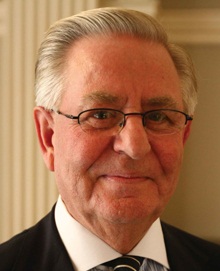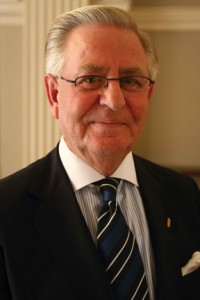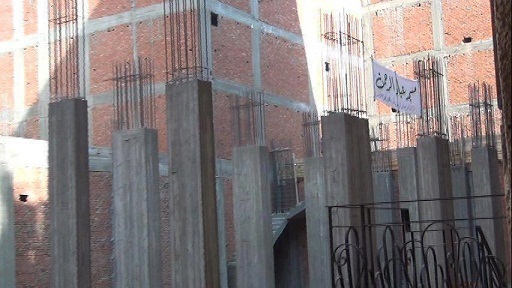Undressing the tree, the Christmas cards tease. Bundle and bung? Or pause wistfully.
The ones from Palestine are most inclining. Not from bullyboys or assassins. They hail from everyday folk.
One draws most attention. The writer points out that when O little town of Bethlehem is sung seldom think of today’s city and its people.
Bethlehem has almost 20,000 Palestinian refugees who lost all; their land, homes and belongings, and arrived seeking refuge, the message reads.
A lifetime later they’re still living in three refugee camps waiting for a just solution.
Bethlehem is a besieged city surrounded on three sides by an 8-metre-high concrete wall. Mary and Joseph wouldn’t be allowed to enter from the Israeli checkpoint, neither the Magi.
The shepherds would be stuck inside the walls, unable to leave their little town. Jesus might have been born at the checkpoint like so many Palestinian children, says the well-wisher.
The Christmas story of then is the Palestinians’ story of now.
For 60 years, two historically paramount issues have dominated the Middle East: The world’s abject failure to resolve the Palestine dilemma and the Arabs’ failure to alleviate poverty.
Both boil down to the same thing: The right of self-determination.
It’s not for the Americans, nor the Israelis, to decide how people live in Palestine. Neither is the prerogative of neighbouring Arab states.
All are responsible for the disgrace of poverty and ignorance, the injustice of human rights and the despair that strangles hope.
Where should all the money go? Melinda Gates, a staunch Roman Catholic, who could spend her wealth on frivolity, chooses to direct the family’s Microsoft fortune into programs that free every woman to decide how her body should function.
She has her priorities right.
To delegate these crucial issues to a government dominated by the Muslim Brotherhood or other religious is as misguided as expecting Roman emperors to govern Jerusalem fairly.
The Brothers are proving to be avaricious power-grabbers, abusing the tenets of freedom.
From ignominy to acclaim, Morsy rose using the Palestinians to curry favour abroad, earning a pat on the back from Obama.
His reward? An Israelis’ poke in the eye announcing 4,000 new Jewish homes to shore up their illegal occupation – the denial of liberty for the tens of thousands of dispossessed.
Where’s the world of tolerance, compromise and hope? Morsy tells the Shura Council the government’s top priority is to fight poverty, unemployment, price hikes and implement a framework of social justice.
Fine words, delivered to a camarilla that he knows perfectly well will shackle freedom of speech and women’s rights.
Morsy says the economic challenges facing the economy must be addressed. Yet again, there’s no detail.
We all know the budget deficit is nearing EGP 200 billion. The pound’s in free-fall. Inflation is up. Half aged 15-24 are out of work. Foreign investment has vaporized. Tourism’s in the doldrums.
Egyptian businesses already pay a fistful of taxes – about three or four times more than the likes of Kuwait, Saudi Arabia, the UAE, Qatar and Bahrain.
Still way shy of Argentina and Tajikistan and Uzbekistan, not to mention The Gambia and the Congo, where tax rates are off the charts.
The spin doctors are preparing the public for the apoplectic shock of taking the $4.8 billion IMF 5-year loan, wrapped in austerity measures and so-called fiscal responsibility.
Who but the most ingenuous and naïve believe the IMF codswallop? Study after study declares the IMF the lender of last resort with unproven benefits to the recipients and a track record of leaving misery in its wake.
Advice from the IMF is worse than advice from a drunk on the street, says Dean Baker from the Centre for Economic and Policy Research.
Where did the trillions go in South America, Asia, Spain, Portugal, Italy and elsewhere? How did Mubarak and his henchmen hoodwink their overseers?
The palace will tell you there’s no other choice. There is.
Three options for Morsy:
1) Sign on with the IMF and quell the bread rioters with tear gas.
2) Soak the rich and join Bolivia and Eritrea in the relegation zone of the World Bank’s league table.
3) Sell off the publicly owned companies.
Option 3 is tempting. If Japan Tobacco thinks its worth buying Egypt’s shisha firms, there must be companies out there willing to purchase anything Egyptian.
It’s up to Morsy.
But is he really focusing on the historical problems: Palestine and the inability of the Middle East to feed itself and dig itself out of its hole?
Egypt’s once-vaunted wisdom is entombed by dogmatists.
Very timely, Deloitte’s 2013 Global Manufacturing Competitiveness Index finds that access to talented workers is the top indicator of a country’s competitiveness.
Egypt is among the most potentially attractive countries for manufacturing, their report says. Nothing is more important to CEOs than the quality, availability and productivity of a nation’s workforce. They drive innovation.
But there’s a fly in the ointment.
Where ignorance is bliss ’tis folly to be wise – Thomas Gray (1716 –1771).
Philip Whitfield is a Cairo commentator.



